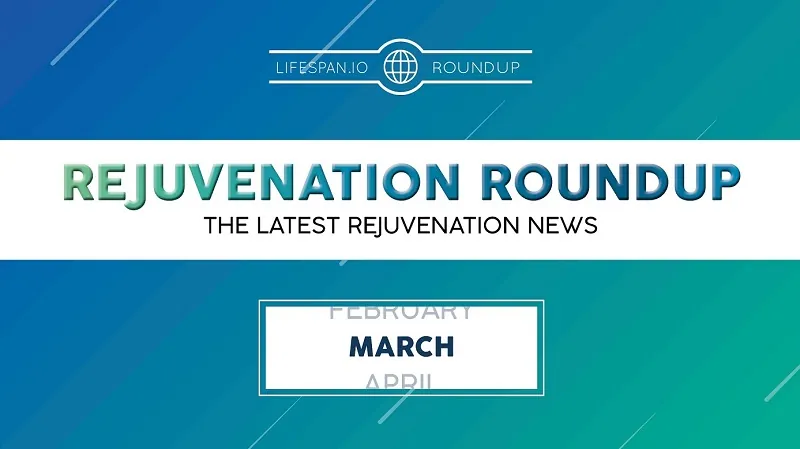Today might be April Fool’s Day, but COVID-19 is no joke, aging isn’t either, and the combination of the two definitely isn’t – and the people attempting to reverse the hallmarks of aging in order to give us longer, healthier lives aren’t messing around. Here’s what’s happened in the world of rejuvenation in March.
LEAF News
Team and activities
Note for our MitoMouse Backers: All of the swag items have been ordered; however, we will not be able to physically ship anything until we are allowed into the building. As of now, the shelter-in-place situation will last until April 7, but it could very well extend for an undefined amount of time. Due to the pandemic, shipping has been halted until the California shelter-in-place order is rescinded, as health is our first priority.
Rejuvenation Roundup Podcast
Ryan O’Shea of Future Grind hosts this month’s podcast, showcasing the events and research discussed here.
Research Roundup
Towards a Possible Solution to Diabetes : Washington University researchers discovered a method of restoring beta cells to the pancreas; this method may prove effective in the treatment of diabetes.
: Washington University researchers discovered a method of restoring beta cells to the pancreas; this method may prove effective in the treatment of diabetes.
Our Immune Cells Damage Our Brains During Aging: Chronic, systemic inflammation (inflammaging) can cause our own immune systems to attack our brains, resulting in damage to fundamental cognitive abilities.
 Success in Reprogramming a Supercentenarian’s Cells: At AgeX Therapeutics, researchers used a technique to reprogram cells from a 114-year-old woman, causing them to act like young cells again.
Success in Reprogramming a Supercentenarian’s Cells: At AgeX Therapeutics, researchers used a technique to reprogram cells from a 114-year-old woman, causing them to act like young cells again.
AgeGuess, a Methylomic Prediction Model for Human Ages: Using an algorithm to determine the relationship between epigenetic changes and aging, a team of researchers has built upon previous work to develop a more accurate epigenetic clock.
The senotherapeutic drug ABT-737 disrupts aberrant p21 expression to restore liver regeneration in adult mice: Liver is one of the best regenerative tissues in the body, but excessive p21 expression harms this process – and is linked to cellular senescence. This drug has been shown to interfere with excessive p21 expression.
Reduced caloric intake and periodic fasting independently contribute to metabolic effects of caloric restriction: In this study, the researchers conclude that some, but not all, of the metabolic benefits of caloric restriction are achieved through periodic fasting.
DNA methylation clocks as a predictor for aging and age estimation in naked mole rats: Naked mole rats are among the longest-lived mammals and a frequent target of aging research efforts. They now have an epigenetic clock in order to support further studies on mammalian aging.
Probiotics modulate the microbiota–gut–brain axis and improve memory deficits in aged SAMP8 mice: The gut and brain are connected through the gut-brain axis, and our gut bacteria have been shown to have significant effects on the functioning of our brains. This study shows that restoring the microbiome through a cocktail of probiotics is beneficial to cognition.
CRISPR/Cas9-Mediated miR-29b Editing as a Treatment of Muscle Atrophy in Mice: Overexpression of miR-29b leads to muscle atrophy, and this mouse study shows that gene therapy is an effective treatment against this condition.
News Nuggets
 Automating Drug Testing With Human Organ Chips: Mimicking human vasculature, Tel Aviv researchers linked together up to 10 tiny organoids in order to automate drug testing.
Automating Drug Testing With Human Organ Chips: Mimicking human vasculature, Tel Aviv researchers linked together up to 10 tiny organoids in order to automate drug testing.




